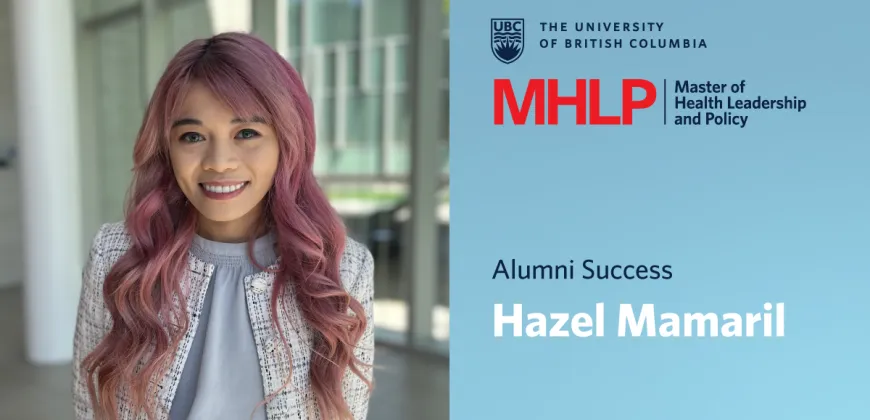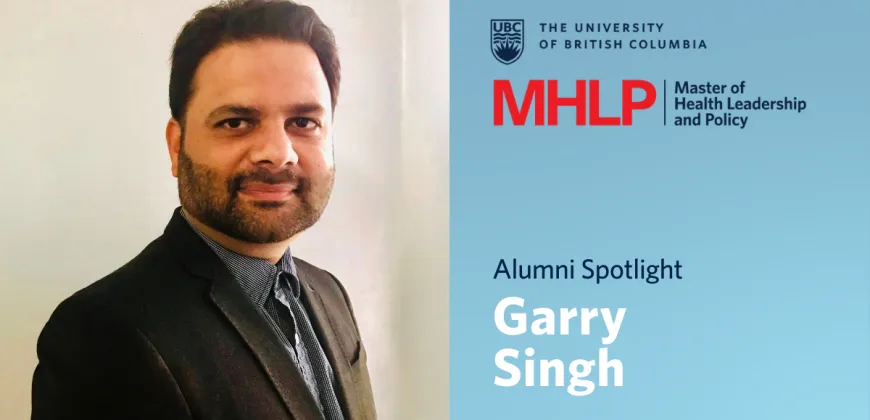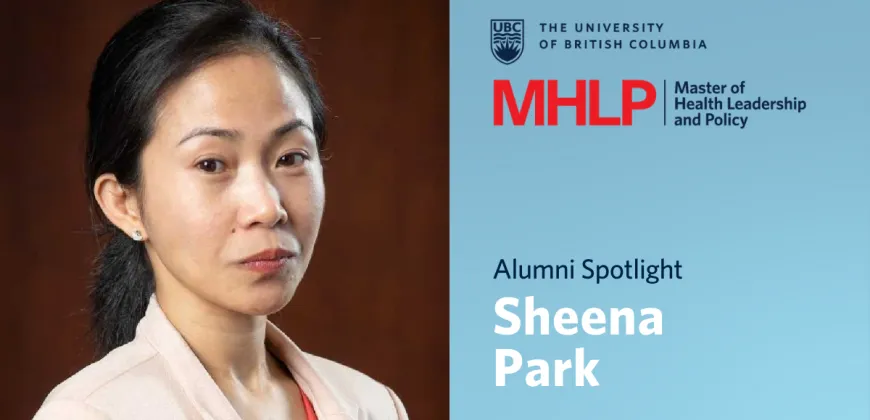Alumni Spotlight: Hazel Mamaril
Within a few short years, Hazel Mamaril has moved into a significant leadership role, advancing from a bedside nursing position to the Director of Health and Wellness for Revera, a national operator of senior living homes.

Hazel Mamaril began working as a dietary aide at age 17 for Revera at a seniors living home, in Surrey, British Columbia. After completing her UBC Bachelor of Nursing in 2017, she continued with Revera as a floor nurse while also working in her community in various settings such as acute care.
Just before the COVID-19 pandemic struck, Hazel joined Amica Senior Lifestyles as the Director of Wellness tasked with opening a new Amica campus, Amica White Rock. Hazel witnessed first hand the impact of the pandemic on seniors’ well-being.
Stepping into healthcare management
This confluence of factors spurred her to go back to school.
“When you are a leader in a residence, you are implementing policy and orders from above and you do not have very much – if any – influence on the policies themselves,” she says.
“I wanted to use my expertise to be part of the decision-making process and to help develop policies that would be best for the people in my care. And I knew having a master’s degree would give me the confidence and credentials to do that.”
While she considered an MBA, she “didn’t want to give up” her health-care background. Similarly, a Master of Science in Nursing didn’t offer the exposure to leadership she was craving. The Master of Health Leadership and Policy (MHLP) in Seniors Care offered the best of both worlds, with its balance of health-care courses offered through the School of Nursing and business and leadership courses offered through the Sauder School of Business.
A curriculum that develops health-care leaders
“The nursing courses I took as an undergraduate focused a lot on clinical skills and competencies says Hazel.
“On the other hand, the master’s courses you take in the MHLP in Seniors Care are completely different.
You explore the bigger picture – looking at factors that influence seniors care, policy and best practices and trends from around the world that could be emulated here.”
The business courses were challenging, but exciting. “It was like learning a different language,” she says. “So much of it was new to me, and it was all so applicable to my work – from accounting to project management.”
Hazel particularly appreciated that the business professors connected the concepts explored in case studies and discussions to the health-care sector. The issue of bottlenecks, for example, is as relevant in a manufacturing context as it is in a health-care facility when there aren’t enough beds for those need in them. And no matter what the industry, learning the tools and techniques of project management is a necessity for the successful roll-out of projects and initiatives.
Leading health care administration
During the first 12 months of the MHLP, Hazel was promoted to the position of Regional Director of Wellness at Amica. Reflecting on this leap, Hazel says “I do not think I would have been equipped for [it] if I had not initially joined the program”.
The next year, she made another jump up, this time to a position of Director of Health and Wellness at Revera, the company she started out at 10 years earlier. After seeing the success at Amica, Revera recruited Hazel to lead, repair, and change their largest and most challenging residence to date.
“I now oversee 11 care homes across Canada,” she says. “My role involves risk management, quality improvement and supporting local leaders.”
While she’s still drawing on her nursing background, there is a definite shift in emphasis and impact. Instead of focusing on fall prevention at the level of the patient, for example, Hazel reviews data on falls, identifies trends, develops prevention strategies and then implements changes to practices and policies to minimize risk and improve patient safety. Her scope of influence is much larger and she is able to make a broader impact on health and well-being of the residents.
She says she misses the more personal relationships she had with seniors when she was a floor nurse. Still, she makes sure to make time for residents when she visits the locations she oversees, meeting with the resident council at each facility to build relationships.
A transformative degree in seniors care
“So much of learning and development happens through experience,” says Hazel.
“However, it feels like I condensed about 10 years of experience into the two years I invested in the MHLP. During the program my salary increased about 47 percent and I advanced into leadership positions, ultimately being promoted into a regional leadership position just five years after completing my undergraduate degree.” Hazel notes that her MHLP experience was a significant factor in the way she was able to negotiate her advancements. “I took this role because I’m confident in change and transformative leadership. The MHLP program prepared me for it.”
She also says that the MHLP boosted her confidence.
“I learned a lot about myself and gained the knowledge and skills to confidently take on positions I know I am capable of and where I can make a difference.”
“I now have greater flexibility to create a positive workplace culture for staff and can introduce changes that ultimately benefit the seniors in our residences.”


